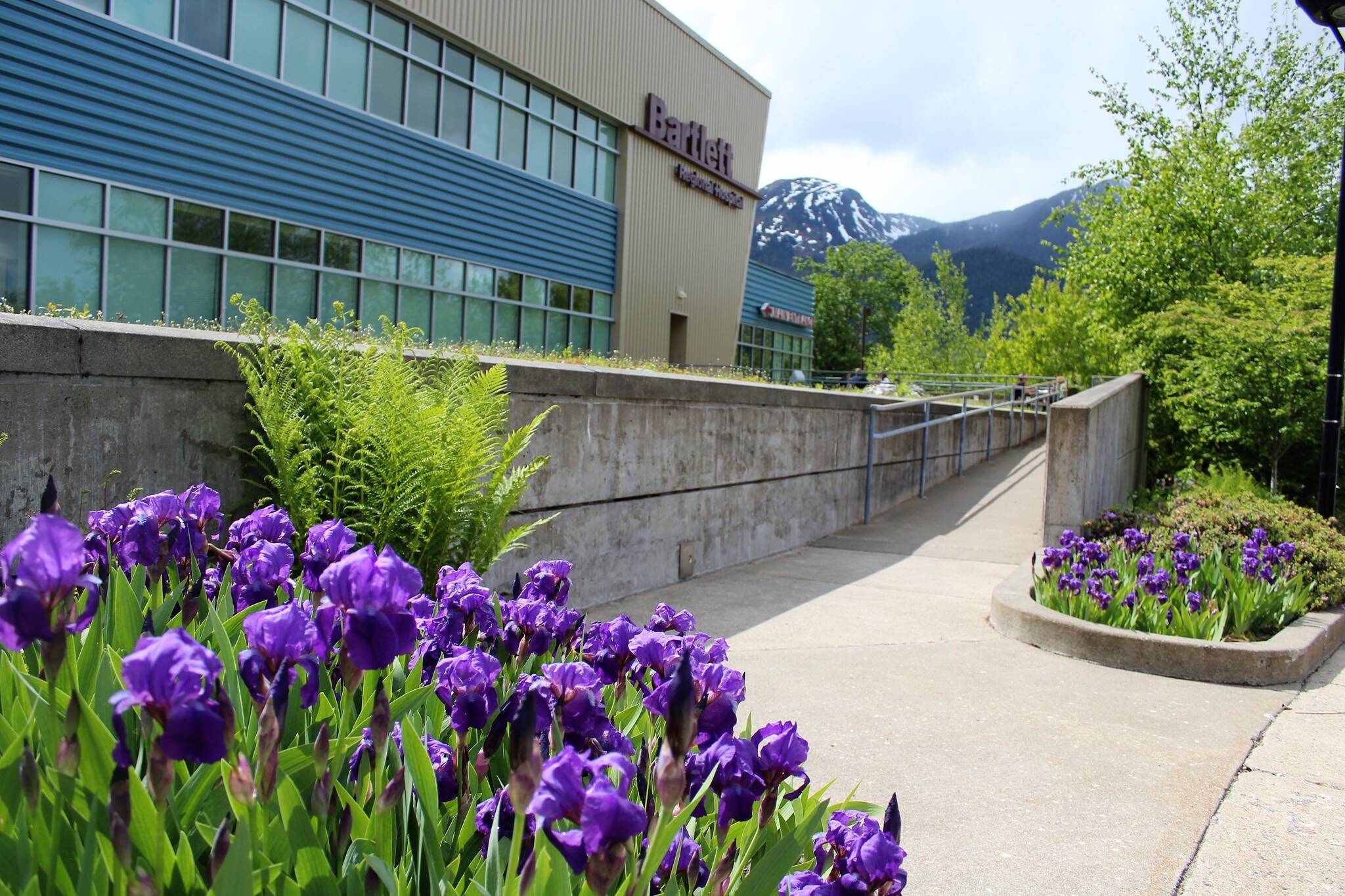A new behavioral health crisis response program involving local police, fire and hospital officials is making its official debut after a rollout period that began about three weeks ago, agencies involved in the effort announced Thursday.
A mobile crisis team consisting of a Bartlett Regional Hospital clinician and Capital City Fire/Rescue paramedic will be available daily from 9 a.m. to 6 p.m. via calls to the standard 988 suicide and crisis lifeline, or when dispatchers refer standard 911 emergency calls to that response line, according to a press release by the city agencies involved.
“Individuals in a behavioral health crisis should call or text 988 to be connected to a counselor,” the release notes. In addition to the mobile crisis team “counselors are available 24/7 and will coordinate with local dispatch in Juneau as needed to deploy the mobile crisis team. Juneau police/fire dispatch will also coordinate calls to 911 for behavioral health emergencies.”
The announcement comes five months after Bartlett’s crisis stabilization program aimed at youths ages 12 to 17 was closed in part of a series of budget-cutting moves that have also affected other behavioral-related care including substance abuse treatment. Erin Harden, a Bartlett spokesperson, said Thursday the new partnership is an effort similar to one in other cities including Anchorage that has a different specific mission than the crisis stabilization program, but can help many of the same people.
“In some ways it’s replacing what we had before, but it’s a very different type of crisis care,” she said. “This is initial response deescalation. This isn’t more longer-term stabilization that we were providing before. So it’s a different part of the continuum of care, but it is all under recognizing that we need behavioral health crisis supports and services in our community.”
The program got off to what officials called a phased rollout on Nov. 25 with hospital clinicians accompanying CCFR’s Mobile Integrated Healthcare (MIH) members on calls, then doing the same with Juneau Police Department officers. Hardin said the intent was “a slow rollout in the community just to make sure that all the different components were going to work well together.”
“So we started out with just our clinicians doing ridealongs with CCFR, responding to their calls, listening and learning what kind of calls they were getting — were they medical in nature, did they have a behavioral health component — and introducing themselves to folks in the community as they joined them on calls,” she said. “Then they did the same thing with JPD officers, again, learning about what kind of calls come in, what is a behavioral health call, making those connections in the community. So our clinicians have made connections, made introductions when they’ve been on behavioral health calls for the past couple of weeks here in town. So they have interacted with individuals who have found themselves in a behavioral health crisis.”
Among the goals of the new crisis program stated in the press release is more efficiently using local emergency officials for situations they are best qualified to handle, which among other things will “reduce the inappropriate use of emergency rooms and correctional settings.”
“When situations occur involving people in a behavioral health crisis, having dispatchers transfer callers to 988 or assigning calls for service to the mobile crisis team will reduce unnecessary law enforcement involvement,” said Juneau Police Chief Derek Bos said in a prepared statement. “The Juneau mobile crisis team will provide resources to people specific to their behavioral health needs. We are pleased to be part of this solution in getting the right responders to the right call.”
The crisis response team, when responding to calls, “provides rapid response, individual assessment, community-based stabilization, follow-up, and coordination with other services and supports,” according to the press release.
“By partnering with Bartlett Regional Hospital and the Juneau Police Department, we can provide timely, compassionate care to individuals experiencing a behavioral health crisis,” CCFR Chief Rich Etheridge said in a prepared statement. “This initiative ensures that people in need receive the right care, in the right place, at the right time, while also reducing the strain on emergency rooms and law enforcement. It’s a collaborative effort that reflects our shared commitment to the well-being of Juneau’s residents.”
• Contact Mark Sabbatini at mark.sabbatini@juneauempire.com or (907) 957-2306.

